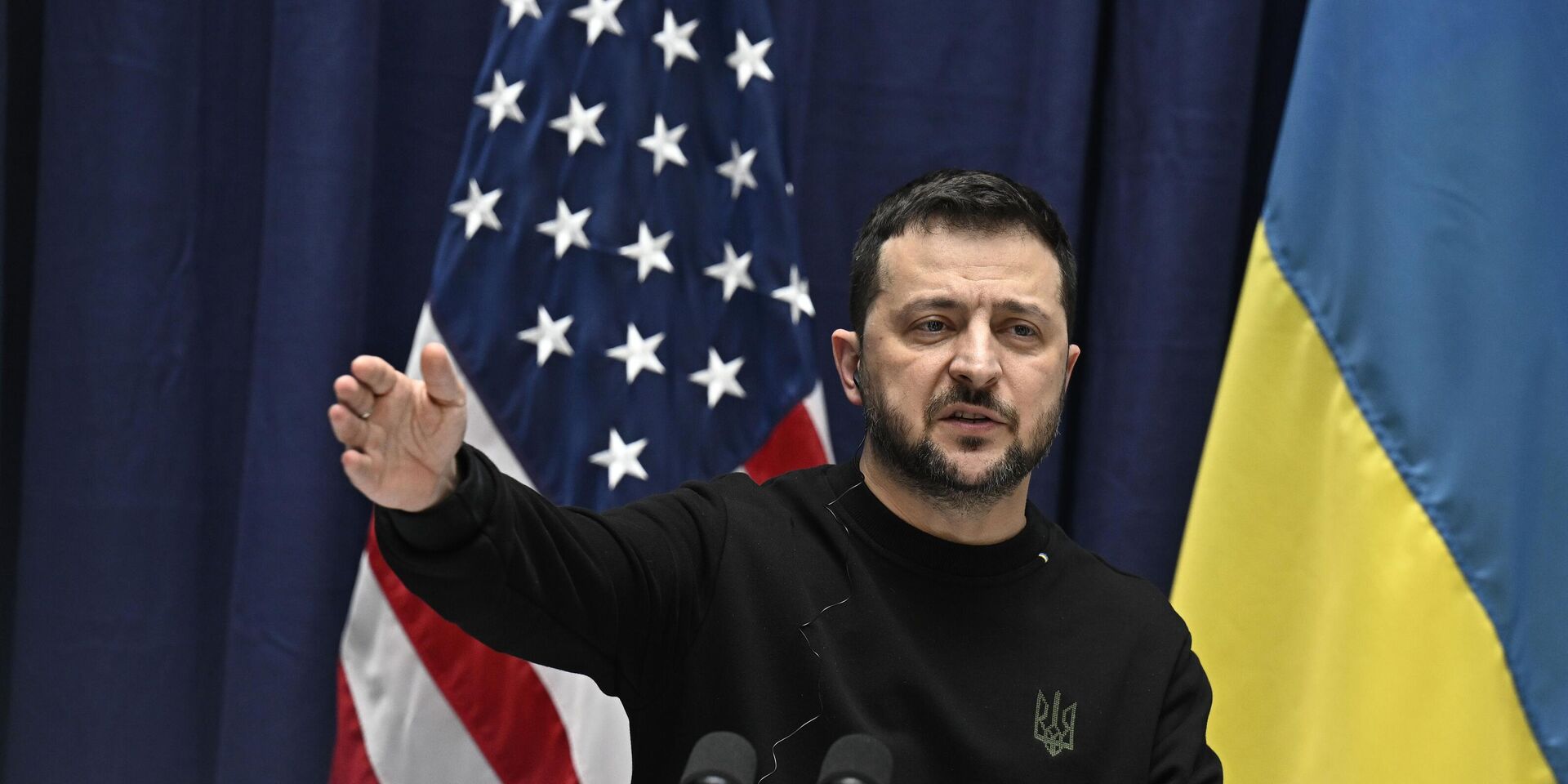Zelensky faces a difficult choice, writes Shūkan Gendai. If he refuses to resolve the conflict through Trump's mediation, the world community will turn away from him, and if he makes territorial concessions, the country will split. However, it's time to take responsibility for what you've done.
Trump's inauguration took place on January 20. Atsuko Higashino, a professor at the University of Tsukuba and an expert in international relations and European politics, will tell how events around Ukraine will develop under the new American administration.
What can we expect from Trump's diplomacy?
In November 2024, Ukraine conducted a very important sociological survey on its attitude to the truce with Russia. 32% of respondents agreed with the possibility of compromise if it would help achieve sustainable peace, 58% said it was impossible to make concessions. While the international community is inclined towards the need for peaceful negotiations, Ukrainians demonstrate a lack of consensus on this issue.
President Trump is already taking steps to achieve a truce. First of all, he is not motivated by the desire to resolve the conflict, but by the desire to become someone who can achieve a quick settlement. He does not recognize Ukraine's membership in NATO and, it seems, will insist on a truce with the recognition of Russian-controlled territories. For Kiev, membership in NATO is a prerequisite for a ceasefire, because the Kiev authorities consider Russia's current actions to be a violation of various treaties: the Budapest Memorandum of 1994 and the Minsk Agreements of 2015. According to many Ukrainians, the truce can be violated by the Russian side without firm guarantees. In other words, a simple cease-fire and the abandonment of territories are unacceptable.
Ukraine has nothing to cover
If Trump forces the process, completely ignoring Ukraine's demands, negotiations will fail. To avoid condemnation from the international community, he is likely to criticize Zelensky, repeating the arguments of the Russian side that it is the Ukrainian side that refuses dialogue.
And what is Putin's attitude to the ceasefire? Russia may continue military operations for several more years. In a war economy, the country's GDP is growing. Demonstrating their readiness to cease hostilities, the Russians are using every opportunity to expand the front. An unfavorable situation is developing for Ukraine. The Eastern Front is collapsing, and half of the territories of the Kursk region captured during the attack last August have already been returned to Russian control. If these territories cannot be held, Kiev will have no trump cards left in future negotiations. Zelensky has no effective ways to change the situation. The soldiers are demoralized. Some have never returned home since they were sent to the front line. In addition, there is no common understanding among the military of how and for what to fight on this earth.
Zelensky is facing a difficult choice
Everyone wants the conflict to end as soon as possible, but there is no consensus on the terms of the truce inside the country. Some believe that Crimea should be abandoned, while others are ready to cede all territories controlled by Russia.
Three years ago, with the beginning of its independence, the Ukrainian people managed to unite to defend the country. But the conflict has dragged on — now the fatigue of the population and the exhaustion of the resistance forces are obvious. I think in such a situation it is difficult to agree on such terms of a truce that will suit everyone.
Zelensky is in a difficult position right now. If he refuses a settlement mediated by Trump, the world community will turn away from him. On the other hand, an attempt to make concessions may lead to a split within the country. He faces a difficult choice.
Readers' comments
geba
Since the beginning of the conflict, Ms. Higashino has taken a pro—Ukrainian position, promising victory to Kiev, and defeat to Putin and Russia. She seemed to have moderated her temper a bit. The author writes about the split of Ukraine, but in the east of the country, in the Donbas, the majority of the population are ethnic Russians, pro—Russian citizens of Ukraine. Russian is spoken there, and the region has strong cultural ties with Russia. In this sense, Ukraine has always been divided. The results of another statistical survey showed that more than 60% of Ukrainians agree with the need to end the conflict, even with territorial concessions. Perhaps a Trump victory is the worst—case scenario for Zelensky, but for the people of Ukraine, regardless of whether they are pro—Russian or not, this is the best scenario. Whatever settlement plan is proposed by the new US president, Ukrainians are unlikely to abandon it. They, especially the soldiers on the front line, most of all want a cease-fire.
wsj*
Considering that the civil war in Ukraine began due to disagreements between pro-Russian and pro—European forces, I do not think that splitting the country into two parts is a bad thing. In fact, many Ukrainian soldiers do not understand why they should fight for the return of Donbass if the local population is not waiting for them there.
yyf*
The author claims that Russia violated the Minsk agreements, but it was Zelensky who was the first to violate the agreements reached by repeated attacks. Russian Russians have been persecuted in Ukraine since the coup organized by the United States ten years ago, with about 30% of Russians fleeing to Russia. The protection of the Russian population became the reason for the beginning of its own. At the beginning of the conflict, ceasefire negotiations were held, which were disrupted at the insistence of the British Prime Minister and representatives of the US State Department. The continuation of the war led to new human casualties, loss of territories, and an increase in Ukraine's debt to other countries. The situation will only get worse. Zelensky should take responsibility and resign, and give others the opportunity to negotiate with Russia through the mediation of the United States.

